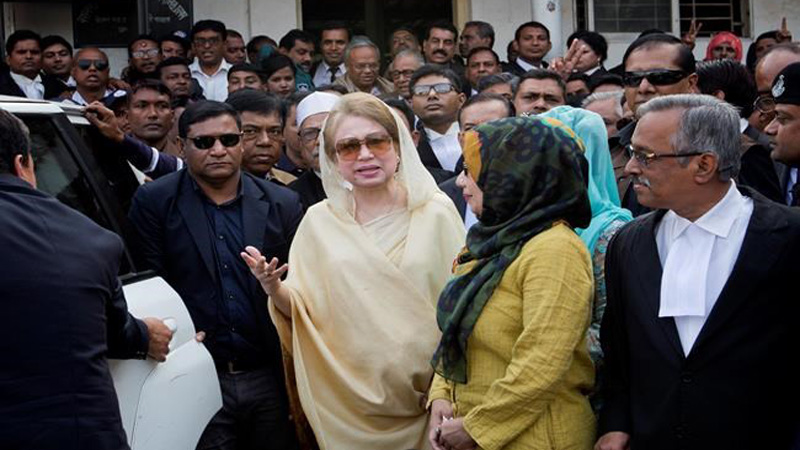
Bangladesh’s government has announced that opposition leader and former Prime Minister Khaleda Zia is ineligible to contest Dec. 30 national elections because she has been sentenced to prison in two corruption cases.
Attorney General Mahbubey Alam said Sunday that anyone convicted and sentenced to two years or more in jail is not eligible according to a recent Supreme Court ruling.
Zia, 73, who has been in jail since February, is serving a 10-year sentence on one corruption conviction. In October, she was sentenced to seven years after being found guilty in another case. Her party has called the convictions politically motivated.
Zia had filed nominations for three parliamentary seats. Her Bangladesh Nationalist Party rejected Sunday’s announcement.
Ruhul Kabir Rizvi, a party leader, called the decision “ill-motivated.”
“The rejection of her nomination papers are part of the government’s blueprint to keep her away from the election,” he said.
The elections will be held under Prime Minister Sheikh Hasina, who is seeking a third consecutive time amid opposition accusations that she is becoming increasingly authoritarian and the opposition is being handled with an iron fist. The country’s law minister had said after her convictions that it was up to the Election Commission to decide whether Zia could contest the polls.
Bangladesh’s constitution says “a person shall be disqualified for election as, or for being, a member of parliament who has been, on conviction for a criminal offense involving moral turpitude, sentenced to imprisonment for a term of not less than two years, unless a period of five years has elapsed since his release.” The attorney general said Sunday that the provision applies to anyone, and election officials cited a Supreme Court ruling to declare Zia unqualified to run.
Zia faces more than 30 other charges, ranging from corruption to sedition, which her party has denounced as politically motivated. The government has denied the allegation. Zia was the country’s prime minister three times — twice for full five-year terms and once for a brief period.
Published in Daily Times, December 4th 2018.